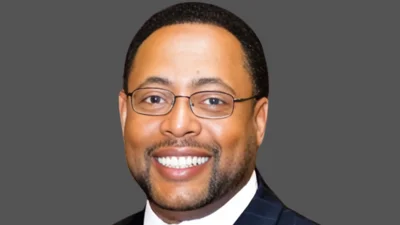Wisconsin State Sen. Julian Bradley (R-28) | Julian Bradley | Facebook
Wisconsin State Sen. Julian Bradley (R-28) | Julian Bradley | Facebook
A measure to amend the Wisconsin Constitution to require voters participating in school, local, state and federal elections to be U.S. citizens will be on the General Election ballot this November.
Currently, the Wisconsin Constitution states that “Every United States citizen age 18 or older who is a resident of an election district” is a qualified voter – whereas the proposed amendment suggests that language be replaced with “Only a United States citizen age 18 or older who is a resident” is a qualified voter.
In order for the amendment to appear on the ballot, Wisconsin’s state legislature was required to reach a majority approval on the measure in two consecutive sessions.
The Wisconsin Legislature is comprised of 132 members, 99 Representatives and 33 Senators. Among the 99 Representatives, 64 are Republicans and 35 are Democrats. Among the 33 Senators, 22 are Republicans, 10 are Democrats and one seat is vacant.
When the measure, Senate Joint Resolution 71, received approval in the state legislature in November 2023, the Assembly and Senate votes fell along party lines.
The Wisconsin State Senate had 21 Republicans vote in favor of the proposed amendment, 10 Democrats vote against it and two members not vote, one Republican and one Democrat.
The Wisconsin State Assembly had 60 Republicans vote in favor of the proposed amendment, 34 Democrats vote against it and five members not vote, four Republicans and one Democrat.
In a hearing on the matter last October, State Sen. Julian Bradley (R-28) offered comments.
“From the debate on this issue last session, I know some legislators believe this is unnecessary, but this is a simple straightforward solution to a problem that threatens our constituents’ most fundamental right, voting. To those who do not believe this is an issue, I would point to the Maryland State Constitution, which uses similar language to describe who can vote, ‘every citizen of the United States.' That language did not stop College Park and 10 other municipalities in Maryland from allowing illegal immigrants to vote in local elections,” Bradley said.
Opponents of the proposed amendment, such as Wisconsin Democracy Campaign Executive Director Nick Ramos, say the current language in the state constitution describes eligible voters and should remain as is.
“There are a multitude of checks and balances to ensure that noncitizens are unable to register to vote and cast a ballot and yet, voters now must choose to change our constitution once again to appease the lawmakers who refuse to look past the conspiracy theories and accept what their own experts have told them. Adding this language to our constitution is disrespectful and unnecessary. The current language describes eligible voters, and it should remain the law of the land,” Ramos said, in part.
A federal law passed in 1996 prohibited non-citizens from taking part in elections for federal offices, such as the U.S. House of Representatives, U.S. Senate and President of the United States, but did not forbid such participation in state or local elections.
In 2024, eight other states besides Wisconsin are voting on ballot measures which address citizenship requirements for voting, including North Carolina, Oklahoma, Missouri, South Carolina, Idaho, Iowa and Kentucky.






 Alerts Sign-up
Alerts Sign-up